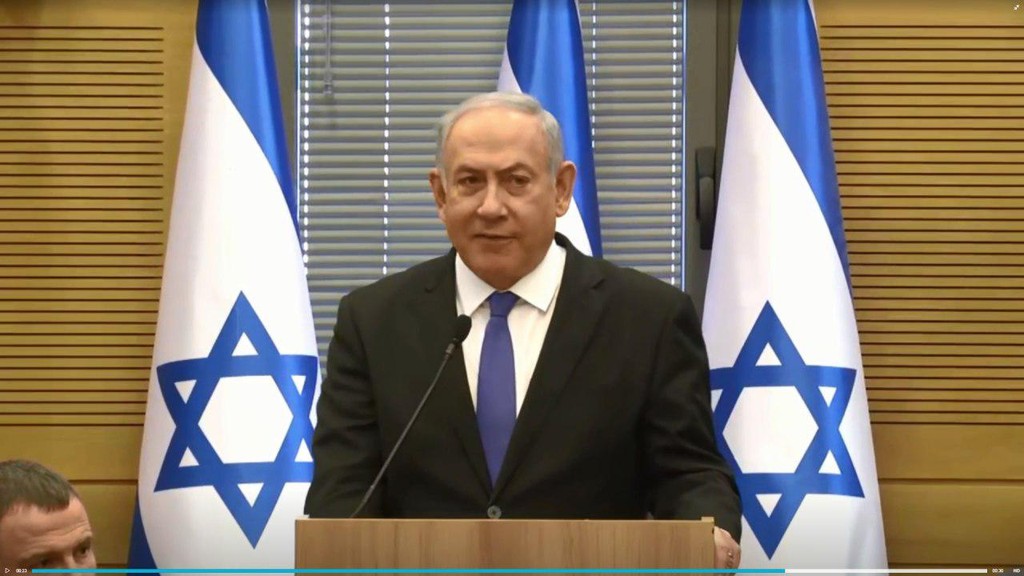The indictment against Prime Minister Benjamin Netanyahu that was announced Thursday evening by Attorney General Avichai Mandelblit has not yet been filed in court, and indeed may not be filed any time soon.
The fact that the legal proceedings against the prime minister cannot continue until a hearing on his immunity is held has clear implications. Namely, his "trial" will be held in the media in the meantime.
The prime minister, like every other Knesset member, does not have automatic immunity from prosecution, but is entitled to seek it within 30 days of receiving the announcement of the decision to prosecute him.
The debate on this request is scheduled to take place in the Knesset House Committee, but Netanyahu's case may not be presented in the near future due to the political mess Israel currently finds itself in.
3 View gallery


Attorney General Avichai Mandelblit announces his decision to indict Prime Minister Benjamin Netanyahu
(Photo: GPO)
As long as no government is formed and there is no coalition agreement, the Knesset House Committee cannot move.
Therefore, the discussion on the issue will not be held for at least the next six months.
One may assume that the announcement of the decision to indict Netanyahu for bribery, fraud and breach of trust will trigger a fierce political and media campaign aimed at sabotaging public confidence in the decision made by Mandelblit.
Among other things, one can expect leaks of material designed to undermine the truthfulness and legitimacy of the indictment, and that intends show that it is founded in error or is biased.
Defendant status
At the same time, the matter is also expected to reach the High Court.
The court will have to deal with a plethora of petitions against the inclusion or exclusion of certain points in the indictment, as well as petitions seeking to remove Netanyahu from the political stage.
The latter petition would rely on the " Deri-Pinhasi precedent" - a previous Supreme Court statement that a government official indicted on serious charges must be removed from office if they do not resign of their own accord.
Such a situation does not apply to a prime minister but given that an incumbent prime minister has never been subject to a High Court review, this issue may well come up.
If Netanyahu does manage to establish a government within the 21-day period now given to all Knesset members to do so (following his and Blue and White leader Benny Gantz's inability to do so), the High Court may receive petitions demanding that President Reuven Rivlin refuse to allow him to do so on the grounds that his legal status has now changed.
Alternatively, if Netanyahu wins the third election that is expected to be held in March 2020, petitions may be filed with the High Court against the president, on the grounds that a prime minister who has the status of a defendant cannot form a government.



